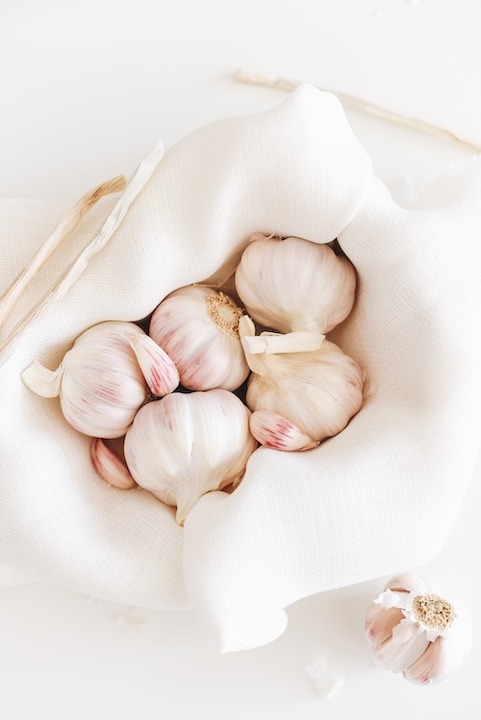
In some situations, it will be difficult to avoid stress, and it is normal to experience stress a lot in our daily life. Chronic stress can cause serious damage to physical and mental health and increase the risk of diseases such as heart disease, depression, etc. It is good to know that following a diet rich in vegetables, fruits, legumes, grains, and protein reduces stress and anxiety.
The importance of food to reduce stress.
Many painful experiences felt in the body, such as muscle cramps, headaches, chest pain, stomach upset, diarrhea and constipation, palpitations and shortness of breath, and many other similar symptoms, are due to the presence of stress and anxiety in the body, which with little Reflecting on your diet and food consumption, you can easily fix them and treat them quickly. In the following, we will introduce some of the simplest foods to reduce stress and anxiety.
Matcha powder.
Matcha is a green tea powder rich in antioxidants and non-protein amino acids with solid blood pressure-lowering properties. Matcha is the best source of amino acids compared to other types of green tea because it is produced from green tea leaves that have been grown in the shade, which increases the amino acid content.
Studies show that if your matcha is of good quality and has a lot of theanine and caffeine, it can be considered one of the essential foods for reducing stress. L-theanine present in matcha helps increase brain alpha waves, which cause mental relaxation and prevent stress.
Sweet potato.
Sweet potatoes are one of the best foods for reducing stress and an excellent choice for providing the body with carbohydrates that contain essential nutrients such as vitamin C and potassium, which are very useful in reducing stress. The potassium in sweet potatoes helps to balance the water in the body and causes oxygen circulation and heart rate regulation. Sweet potatoes also contain a lot of magnesium, which is vital in relieving stress.
In general, the consumption of complete and nutrient-rich carbohydrate sources, such as sweet potatoes, helps to reduce the level of the stress hormone cortisol. Chronic stress can cause cortisol dysfunction and cause inflammation, pain, and other side effects.
Kimchi.
Kimchi is a fermented vegetable dish typically made with napa cabbage and daikon (a type of radish). Fermented foods like kimchi contain beneficial bacteria, probiotics, vitamins, minerals, and antioxidants. Research shows that fermented foods help reduce stress and anxiety.
For example, a study of 710 adults found that those who ate more fermented foods experienced fewer symptoms of social anxiety.
Also, many other studies show that probiotic supplements and probiotic-rich foods such as kimchi have beneficial effects on mental health, which is probably due to the interactions of these foods with gut bacteria that directly affect people’s moods.
Artichoke.
Artichoke is one of the vegetables and foods to reduce stress and is rich in fiber and probiotics. In fact, artichoke is a type of fiber that beneficial intestinal bacteria can feed on. Studies show that prebiotics such as FOS, found in artichokes, can help reduce stress levels.
In addition, research in this field showed that people who consume 5 grams or more of probiotics daily have fewer symptoms of anxiety and depression. Artichoke is rich in potassium, magnesium, and vitamins C and K, essential for reducing stress.
White meat and red meat.
Beef and chicken are excellent sources of B vitamins, especially B12, B6, riboflavin, and folate, essential for managing stress. For example, B vitamins are necessary for producing neurotransmitters such as dopamine and serotonin, which help regulate mood.
Supplementing with B vitamins or eating foods like white and red meat can help reduce stress. According to several studies conducted on adults, it was found that B vitamin supplements reduce stress levels and are significantly effective in improving mood.
Egg.
Eggs are often called nature’s multivitamin due to their impressive nutritional properties. Eggs contain vitamins, minerals, amino acids, and antioxidants necessary to reduce stress. Eggs are also rich in the nutrient choline.
Choline is essential to brain health and protects your body from stress. According to studies, choline supplements help reduce stress and have a good effect on boosting mood.
Egg yolk is rich in vitamin D. Eggs contain an amino acid called tryptophan that helps produce serotonin in the body. Serotonin is a chemical transmitter that helps regulate mood, sleep, and memory, relieves stress and anxiety, and improves brain function.
Oyster.
Oysters have many amino acids studied to know their effect on boosting mood. Taurine is a non-protein amino acid that is necessary for the production of neurotransmitters such as dopamine. It is interesting to know that dopamine is essential to regulate the level of stress. Studies show that taurine has anti-depressant effects, and oysters are rich in this beneficial substance.
Oysters also contain vitamin B12, zinc, copper, manganese, and selenium, which are valuable and effective for boosting mood and relieving stress. In a study conducted by researchers on 2089 Japanese adults, they concluded that the lack of zinc, copper, and manganese caused symptoms of depression and anxiety in people, and oysters are a good source of these vitamins.
Oily fish.
Consuming fatty fish such as salmon and sardines, which are rich in omega-3 and vitamin D, is very useful for reducing stress and improving mood. Omega-3 is essential for brain and mood health and helps the body manage stress well.
Consuming a low omega-3 is directly related to increased anxiety and depression. Recent research shows that if a person does not receive enough omega-3, the risk of developing mood disorders such as anxiety and stress increases. Vitamin D also plays an essential role in mental health and stress regulation, and low vitamin D levels in the body increase anxiety and depression.
Parsley.
Parsley is a nutritious plant full of antioxidants and neutralizes free radicals in the body, reducing oxidative stress. Oxidative stress is associated with many diseases, including mental disorders such as depression and anxiety, and leads to the body’s loss of balance between free radicals and antioxidants. Studies show that a diet rich in antioxidants can prevent stress and anxiety.
Parsley contains carotenoids, flavonoids, and other nutrients, all of which have strong antioxidant properties.

Garlic.
Garlic is rich in sulfur compounds that increase glutathione levels and is made of three amino acids: cysteine, glutamic acid, and glycine. These antioxidants are part of the body’s first defense against stress.
In addition, studies show that garlic is a rich source of vitamins C, B6, iron, magnesium, sulfur, and calcium, which help fight stress and reduce symptoms of anxiety and depression. Consuming even a small amount of this food can play an influential role in dealing with stress. Garlic lowers cholesterol levels and protects heart health, and also has a significant effect on increasing the body’s immune system.
Therefore, garlic is another stress-reducing nutrient with antibacterial, antiviral, and antifungal effects. The protective effects of garlic on the body strengthen the nervous system and reduce stress, one of the most important pathogenic factors. Consuming garlic reduces inflammation and relieves muscle cramps during stress.
Tahini.
Tahini, a thick, oily paste made from finely ground sesame seeds, is an excellent source of the amino acid L-tryptophan. L-tryptophan is the precursor of the mood-regulating neurotransmitters dopamine and serotonin. Using a diet containing tryptophan can help boost mood and reduce symptoms of depression and anxiety.
A 4-day study on 25 adults showed that following a diet high in tryptophan led to better mood, reduced anxiety, and reduced symptoms of depression.
Sunflower seeds.
Sunflower seeds are rich in vitamin E. Vitamin E is fat-soluble and is essential for mental health as a powerful antioxidant. On the other hand, low consumption of this nutrient is associated with mood changes and depression. Sunflower seeds contain other stress-reducing nutrients, including magnesium, manganese, selenium, zinc, B vitamins, and copper.
Sunflower seeds control anxiety and prevent the excessive release of cortisol, the stress hormone, and weight gain. These valuable seeds, almost like other types of seeds and nuts, have a large amount of essential fatty acids and the mineral zinc necessary to strengthen the body’s immune system.
Broccoli.
Cruciferous vegetables such as broccoli are highly recommended for daily use due to their many benefits in increasing health levels. A diet rich in cruciferous vegetables can reduce the risk of certain cancers, heart disease, and mental disorders such as depression. Broccoli contains nutrients, including magnesium, vitamin C, and folate, effectively dealing with depression symptoms.
Broccoli is also rich in sulforaphane, a sulfur compound that protects the body against neurodegenerative diseases. It also has soothing and anti-depressant effects, and this type of vegetable is highly recommended to reduce anxiety and depression, especially in women.
Pea.
Chickpeas contain various anti-stress vitamins and minerals such as magnesium, potassium, B vitamins, zinc, selenium, manganese, and copper. This delicious legume also contains L-tryptophan, which the body needs to produce mood-regulating neurotransmitters.
Research has shown that diets rich in plant proteins, such as peas, can help boost brain health and improve mental performance. In a study of more than 9,000 people, those who ate a Mediterranean diet rich in plant foods such as legumes compared to those who followed a Western diet rich in processed foods found that the former group had higher mood and stress. They have less than the second group.
Chamomile tea.
Chamomile is a medicinal plant used as a stress reliever and sedative since ancient times. Chamomile tea and extract have been proven to reduce symptoms of anxiety and depression in addition to promoting restful sleep.
Chamomile tea, in addition to relaxing body muscles and having a comfortable and quality sleep, removes stress from your mind and relaxes your muscles. Some ingredients in chamomile tea do exactly what sedatives do to the brain.
Blueberry.
Blueberry has many health benefits, including improving mood. This delicious fruit is rich in flavonoid antioxidants that have anti-inflammatory effects, help reduce stress, and protect against cell damage caused by stress.
In addition, studies have shown that eating flavonoid-rich foods like blueberries can prevent depression and boost your mood.
Vitamins C and E can be mentioned among the antioxidants in blueberries. Blueberries can reduce the production of cortisol, which is one of the stress hormones. Also, blueberries contain potassium, magnesium, and manganese, which help reduce physical tension caused by stress.
As mentioned, many foods contain nutrients to reduce stress. The ingredients mentioned in this article, such as matcha powder, fatty fish, kimchi, garlic, chamomile tea, broccoli, etc., were just a few that help you reduce everyday stress. Try incorporating some of these foods and drinks into your diet to relieve stress and boost your mood naturally.
In general, following a varied and balanced diet that includes a variety of foods can help reduce anxiety, and exercise and enjoyable physical activities will have a good effect on mental health. So by having a quality diet and regular physical activity, you can keep daily stress away as much as possible.
What is the role of diet in reducing stress and anxiety?
A diet rich in vegetables, fruits, legumes, grains, and protein can help reduce stress and anxiety. Certain foods have properties that can alleviate stress and anxiety symptoms.
How does Matcha powder help reduce stress?
Matcha is a green tea powder rich in antioxidants and non-protein amino acids with blood pressure-lowering properties. It is a good source of amino acids, especially L-theanine, which helps increase brain alpha waves, causing mental relaxation and preventing stress.
What makes sweet potatoes a good food for reducing stress?
Sweet potatoes are rich in essential nutrients such as vitamin C and potassium, which are very useful in reducing stress. They also contain a lot of magnesium, which is vital in relieving stress. The consumption of nutrient-rich carbohydrate sources, like sweet potatoes, helps to reduce the level of the stress hormone cortisol.
How does Kimchi help in reducing stress and anxiety?
Kimchi, a fermented vegetable dish, contains beneficial bacteria, probiotics, vitamins, minerals, and antioxidants. Research shows that fermented foods like kimchi help reduce stress and anxiety. Probiotic-rich foods such as kimchi have beneficial effects on mental health, likely due to their interactions with gut bacteria that directly affect people’s moods.
How do white meat and red meat contribute to stress management?
Beef and chicken are excellent sources of B vitamins, especially B12, B6, riboflavin, and folate, which are essential for managing stress. These vitamins are necessary for producing neurotransmitters such as dopamine and serotonin, which help regulate mood.
What properties make eggs a good food for stress reduction?
Eggs contain vitamins, minerals, amino acids, and antioxidants necessary to reduce stress. They are also rich in the nutrient choline, which is essential to brain health and protects your body from stress. Eggs contain an amino acid called tryptophan that helps produce serotonin in the body, a chemical transmitter that helps regulate mood, sleep, and memory, relieves stress and anxiety, and improves brain function.
How do oysters help in relieving stress?
Oysters have many amino acids that are known for their mood-boosting effects. They are rich in taurine, a non-protein amino acid necessary for the production of neurotransmitters such as dopamine, which is essential to regulate the level of stress. Oysters also contain vitamin B12, zinc, copper, manganese, and selenium, which are valuable and effective for boosting mood and relieving stress.
What are the benefits of consuming fatty fish like salmon and sardines for stress reduction?
Fatty fish such as salmon and sardines are rich in omega-3 and vitamin D, which are very useful for reducing stress and improving mood. Omega-3 is essential for brain and mood health and helps the body manage stress well. Low intake of omega-3 is directly related to increased anxiety and depression. Vitamin D also plays an essential role in mental health and stress regulation.
How does parsley help in reducing stress?
Parsley is a nutritious plant full of antioxidants that neutralize free radicals in the body, reducing oxidative stress. It contains carotenoids, flavonoids, and other nutrients, all of which have strong antioxidant properties.
How does garlic contribute to stress reduction?
Garlic is richin sulfur compounds that increase glutathione levels, which are part of the body’s first defense against stress. It is also a rich source of vitamins C, B6, iron, magnesium, sulfur, and calcium, which help fight stress and reduce symptoms of anxiety and depression. Garlic lowers cholesterol levels, protects heart health, and has a significant effect on increasing the body’s immune system.
How does Tahini help in reducing symptoms of depression and anxiety?
Tahini, a thick, oily paste made from finely ground sesame seeds, is an excellent source of the amino acid L-tryptophan, the precursor of the mood-regulating neurotransmitters dopamine and serotonin. A diet containing tryptophan can help boost mood and reduce symptoms of depression and anxiety.
What makes sunflower seeds a good food for stress reduction?
Sunflower seeds are rich in vitamin E, a powerful antioxidant essential for mental health. They also contain other stress-reducing nutrients, including magnesium, manganese, selenium, zinc, B vitamins, and copper. Sunflower seeds control anxiety and prevent the excessive release of cortisol, the stress hormone.
How does broccoli help in dealing with depression symptoms?
Broccoli contains nutrients, including magnesium, vitamin C, and folate, which are effective in dealing with depression symptoms. It is also rich in sulforaphane, a sulfur compound that protects the body against neurodegenerative diseases and has soothing and anti-depressant effects.
How do peas contribute to improving mental performance?
Chickpeas contain various anti-stress vitamins and minerals such as magnesium, potassium, B vitamins, zinc, selenium, manganese, and copper. They also contain L-tryptophan, which the body needs to produce mood-regulating neurotransmitters. Diets rich in plant proteins, such as peas, can help boost brain health and improve mental performance.
How does chamomile tea help in reducing stress?
Chamomile is a medicinal plant used as a stress reliever and sedative since ancient times. Chamomile tea and extract have been proven to reduce symptoms of anxiety and depression in addition to promoting restful sleep.
How do blueberries help in improving mood and reducing stress?
Blueberries are rich in flavonoid antioxidants that have anti-inflammatory effects, help reduce stress, and protect against cell damage caused by stress. Eating flavonoid-rich foods like blueberries can prevent depression and boost your mood. They also contain potassium, magnesium, and manganese, which help reduce physical tension caused by stress.







